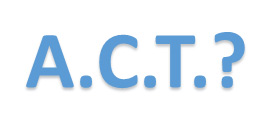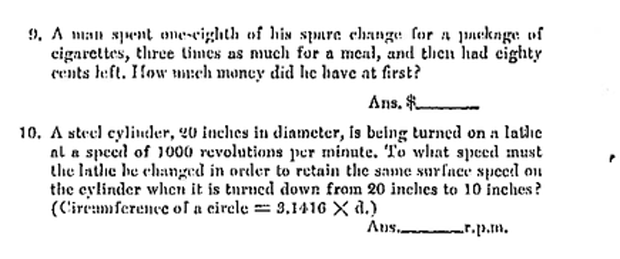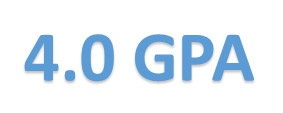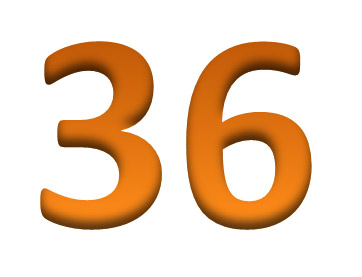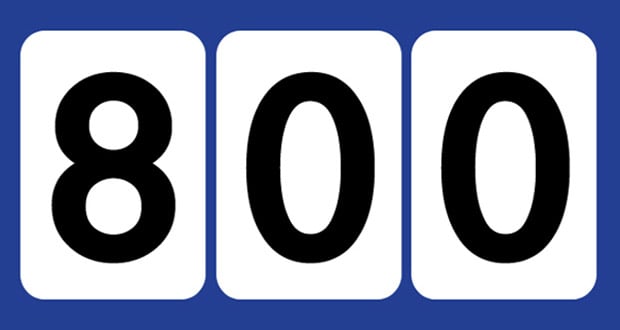If you're deciding between taking the SAT and the ACT and you have a tight budget, this guide will help. We'll cover the registration costs, reporting costs, and how you can save money no matter what test you choose.
Allen Cheng
Recent Posts
When Do ACT Scores Come Out? ACT Score Release Schedule
You've taken the ACT and are now waiting for your scores. This can be a tense time, but knowing when exactly to expect your ACT results can help you plan ahead.
When do ACT scores come out exactly? In this article, find out when your test scores will become available, how to get your ACT results as fast as possible, and what to do once you have them.
The ACT is the second-most popular college admissions standardized test in the US, with nearly as many test-takers each year as the SAT.
But what does ACT actually stand for, and why does this actually matter? We answer all your questions in this guide.
The SAT was first introduced in 1926, and since then it has continued to be a major test for college admissions standardized testing.
But what does SAT actually stand for?. To answer that question, we have to look more closely at the history of the SAT. The truth is that the name of the test has changed four times over the past 90 years!
Knowing how the name of the SAT has changed can help you better understand the significance of this major test for college admissions. The reasons for changing the name of the SAT point to controversies and scandals about the test that have affected how the test is perceived by colleges. Continue reading to find more about the history of the SAT and the reasoning behind the name.
At PrepScholar, we've written the largest set of high-quality SAT guides available, covering pretty much everything you need to know to improve your score on the digital SAT. They're all free and online, right here on our blog, and we think they beat any book you can purchase.
This guide, our Ultimate SAT Prep Study Guide, combines our most important SAT guides on one page. If you master all of the concepts linked to on this page, use them in your own practice and studying, and stay motivated to work hard, you'll have an amazing shot at improving your SAT score. Essentially, you'll have a huge advantage over students who don't know this information and lack the motivation to employ it in their own studying.
These 2 Recommendation Letters Got Me Into Harvard and the Ivy League
When I applied to college, I was accepted into every school I applied to, including Harvard, Princeton, Stanford, MIT, the Ivy League, UC Berkeley, UCLA, and more. While I had a strong overall application, the two teacher letters of recommendation were critical in getting me admitted.
Why? Both teachers said I was one of the top students they had ever taught. Both enthusiastically advocated for my personality, leadership skills, and energy.
How can you earn recommendation letters that will get you into your top choice colleges? I'll show you how in this article.
For the first time, I'm sharing my full, unedited letters of recommendation as examples for you. These are the exact letters submitted when I applied to college. Even better, you'll see exactly what my Harvard admissions officer underlined—what really stood out as important and noteworthy.
How to Get Into Harvard and the Ivy League, by a Harvard Alum
Many students dream of getting into elite schools like Harvard, Yale, Princeton, or Stanford, but how exactly to accomplish this is often a mystery. Lots of unhelpful and vague advice abounds, especially from people who have never gained admission to these schools.
In high school, I got into every school I applied to, including Harvard, Princeton, MIT, and Stanford, and I attended Harvard for college. I also learned a lot about my classmates and the dynamics of college admissions in ways that were never clear to me in high school. Now, I'm sharing this expertise with you.
I've written the most comprehensive guide to getting into top schools. I'm going to explain in detail what admissions officers at Ivy League schools are really looking for in your application. More importantly, I'm going to share an actionable framework you can use to build the most compelling application that's unique to you.
How to Get a 4.0 GPA and Better Grades, By a Harvard Alum
On the 4.0 scale, an unweighted 4.0 GPA means perfection. You need straight As in every class—not even one A- is allowed. In college applications, this carries a lot of weight. You're essentially telling the college, "High school classes are a cinch. I've taken a tough course load, and I'm more than prepared for what college has to throw at me."
In high school, I got a 4.0 GPA with a course load featuring 10 AP courses. I got straight As and 12 A+'s. This strong course load, along with a strong application, got me into Harvard and every college I applied to.
While it's flattering to say, "Well, Allen's just a smart guy," in reality I relied a lot more on high-level strategy and effective academic habits. These were the same strategies I applied to my undergraduate work at Harvard and that led me to graduate summa cum laude with a 3.95 GPA. This is the guide I wish I had my freshman year of high school.
New SAT Conversion Chart: Old 2400 to New Digital SAT 1600 (Official)
In March 2016, the SAT underwent a massive redesign, part of which included a change to its scoring system: it shifted from a 2400-point scale to a 1600-point scale.
The SAT had another redesign in 2023/2024 when it went completely digital, but the new Digital SAT is still scored on a 1600-point scale like the 2016-2023 test, so no major changes there. But how do you compare a new Digital SAT score with one on the old SAT 2400 scale? What scores are colleges looking for since some still don't have data on the new SAT?
The official new SAT to old SAT conversion charts below offer the most accurate score conversions from one SAT to the other. If you need to convert your new Digital SAT score to an old SAT score, or vice versa, simply use our handy conversion tool below to find your score.
After you get your SAT conversion, keep reading—I tell you why it's easier to get a higher SAT score than before due to the new SAT scoring advantage (the new SAT score is higher in certain score regions!).
The maximum score on the ACT is a 36. Out of the 1.9 million students who take the test every year, only about 3,700 get the highest possible ACT score. This elusive perfect score places you at the top of millions of high school students and can be a big boost to your college applications.
I scored a perfect score on the ACT.
Most of the advice out there about how to get a perfect score comes from people who didn't get perfect scores. In this exclusive article, I'll be breaking down exactly what it takes, and the techniques I used to get a perfect score.
My Successful Harvard Application (Complete Common App + Supplement)
Other High School, College Admissions, Letters of Recommendation, Extracurriculars, College Essays
In 2005, I applied to college and got into every school I applied to, including Harvard, Princeton, Stanford, and MIT. I decided to attend Harvard.
In this guide, I'll show you the entire college application that got me into Harvard—page by page, word for word.
In my complete analysis, I'll take you through my Common Application, Harvard supplemental application, personal statements and essays, extracurricular activities, teachers' letters of recommendation, counselor recommendation, complete high school transcript, and more. I'll also give you in-depth commentary on every part of my application.
To my knowledge, a college application analysis like this has never been done before. This is the application guide I wished I had when I was in high school.
If you're applying to top schools like the Ivy Leagues, you'll see firsthand what a successful application to Harvard and Princeton looks like. You'll learn the strategies I used to build a compelling application. You'll see what items were critical in getting me admitted, and what didn't end up helping much at all.
Reading this guide from beginning to end will be well worth your time—you might completely change your college application strategy as a result.
We Ask Admissions Officers: What's the #1 Fact You Wish Applicants Knew?
College admissions can be confusing, with a lot of contradictory information thrown around. It's hard to separate fact from fiction, which is frustrating since the stakes are high and you may not realize you made mistakes until it's far too late.
In this exclusive article, we decided to consult university admissions officers and counselors around the country to break through the noise.
We asked them a simple question: "What's the #1 fact you wish college applicants knew about admissions?" The results might surprise you.
How to Get 800 on SAT Reading: 11 Strategies by a Perfect Scorer
Are you scoring in the 600-750 range on SAT Reading + Writing? Do you want to raise that score as high as possible—to a perfect 800?
UPDATE: This article discusses a previous version of the SAT. If you are looking to get a perfect score on the digital SAT check out my guide to getting an 800 on SAT Reading and Writing.
How to Improve Your ACT English Score: 9 Tips From a Perfect Scorer
Are you struggling with ACT English scores between 14-24? You're not alone—hundreds of thousands of other students are scoring in this range. But many don't know the best ways to break out of this score range and get 26+ on the ACT.
Here we'll discuss how to improve ACT English score effectively, and why it's so important to do so. Put these principles to work and I'm confident you'll be able to improve your score.
What Harvard's Asian Admissions Lawsuit Reveals About How You Should Approach College Applications
The hottest news in college admissions these days is the release of documents from the lawsuit filed against Harvard University for unfair admissions practices against Asian-Americans. For the first time in recent memory, an elite institution's opaque admissions practices have been laid bare. More than 90,000 pages of internal Harvard admissions documents have been made available for use in the lawsuit, with excerpts made publicly available in court filings.
In this article, I'll summarize what this lawsuit is about and what we learned about how top-tier schools like Harvard choose which students to accept. (Spoiler: most of it confirms what I wrote about in my How to Get Into Harvard guide. If you haven't read that, I suggest you open it in a tab right now, and read it after you finish this article).
Most importantly, we'll cover what this means for how YOU should be preparing for college admissions.




